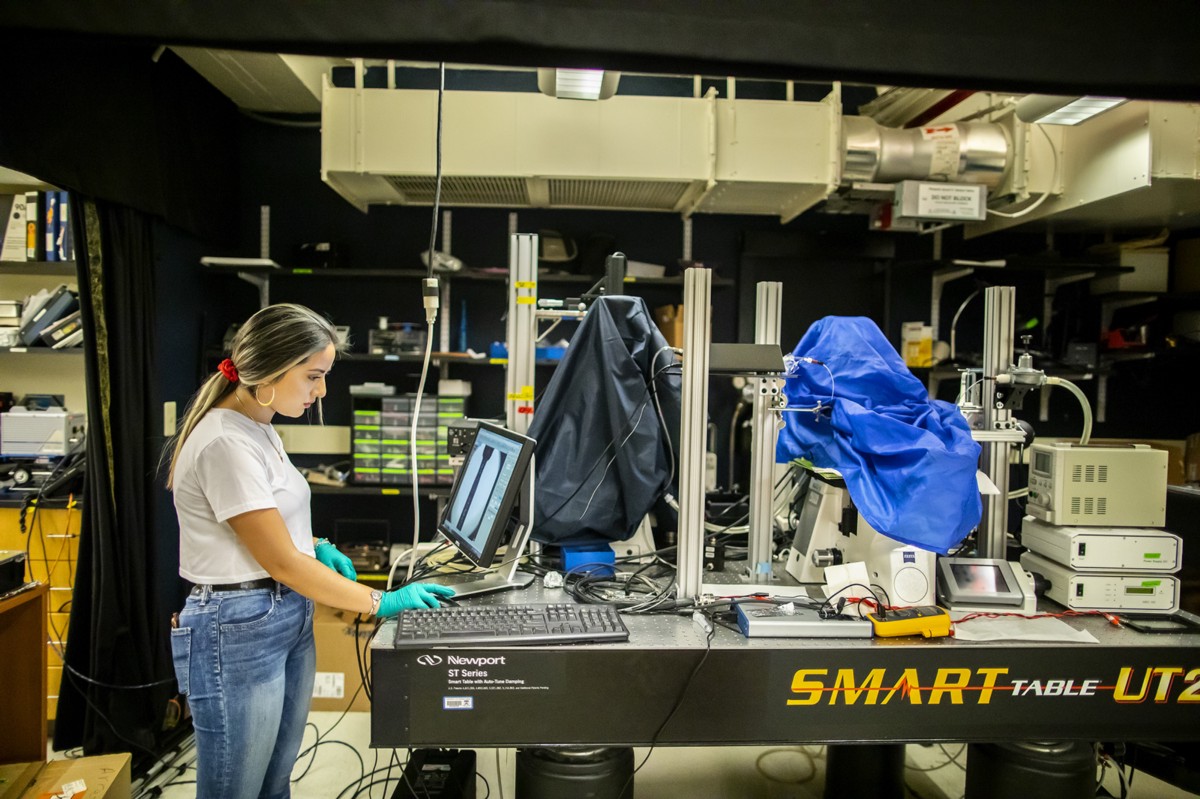Solving Complex Problems with Purpose
Senior Angelica Padilla, who recently completed research through the Laboratory for Research on the Structure of Matter undergraduate summer program, shares her passion for fluid mechanics.

By Erica K. Brockmeier
Growing up in San Antonio, senior Angelica Padilla always knew that she liked engineering. “I knew it was problem solving-based, and I liked that part. I liked a bit of pressure, being questioned, and finding different answers to the same question,” she says.
As she completes her second semester of summer research in the lab of Paulo Arratia, most recently as part of the NSF-funded summer undergraduate research program at the Laboratory for Research on the Structure of Matter, the chemical and biomolecular engineering major continues to have a strong desire to solve problems that combine her interests in fluid mechanics, physics, and engineering.
Padilla reached out to Arratia, a fluid mechanics professor, because of her interest in mechanical engineering and her goal of gaining experience outside of her coursework. “I like physics, energy, heat, and mass. Dr. Arratia did chemical engineering in his undergrad, so I reached out to him because I related to him,” she says.
In Arratia’s Complex Fluids lab, Padilla studies active fluids, ones that contain living organisms like E. coli or algae. In the past 10 years, there’s been a lot of interest in understanding how living organisms influence the dynamics of fluid systems and materials. “It’s very interdisciplinary,” says Arratia about the field. “It takes biology, engineering, physics, chemistry. And that’s the world in which Angelica has been immersed.”
One of the challenges is understanding how cells and organisms influence the material properties of a fluid, like its viscosity and elasticity. This type of information is crucial for future applications that might use E. coli to generate fuel, create vaccines, or clean contaminated sites.

“For typical fluids, you can measure viscosity, but for active complex fluids, specifically E. coli cells, the viscosity changes and you don’t really know if it’s going to go up or down,” explains Padilla. “It’s incredibly important because viscosity is going to be in every equation.”
Padilla says that some days are straightforward: The cells grow and she runs an experiment and gets the data that she needs. But at other times, Padilla relies on her troubleshooting and engineering skills to solve a problem, with some help from other researchers in the Arratia lab. She says that her ability to adapt to problems as they arise has been instrumental in the lab and is thankful for the opportunity to tap into that skillset.
“That was one of my strong suits, which is why I’ve always loved engineering so much. But I never really had the chance to do it because in school you can’t sit there for hours and try and figure it out, you have so many other things to do. So it’s nice being able to use your mind and figure out creative solutions,” says Padilla.
Continue reading at Penn Today.
